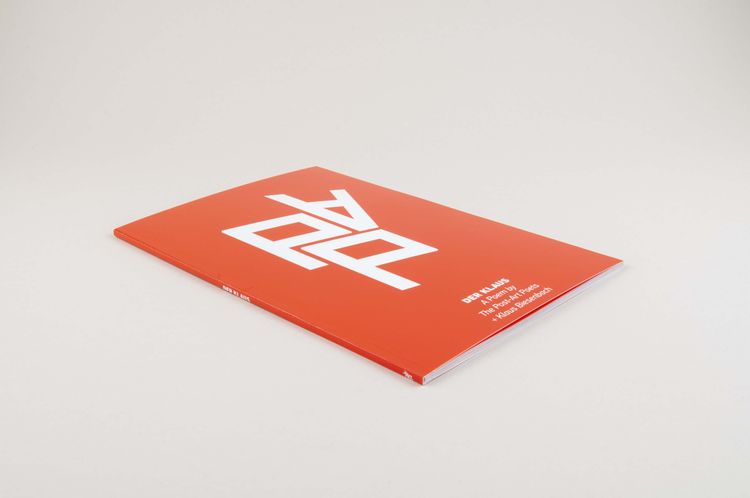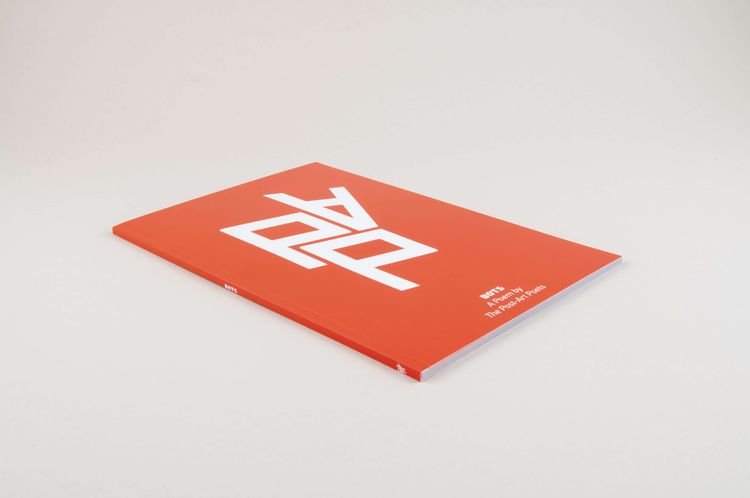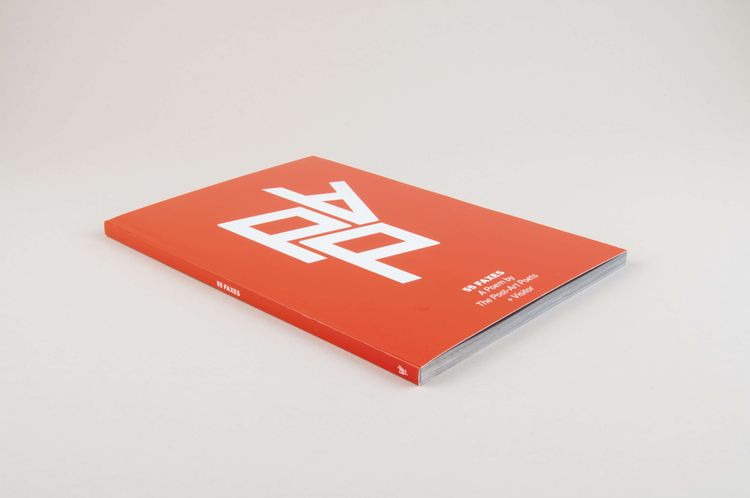The Post-Art Poets was a group of conceptual poets active between 2013 and 2014 (known members include Vanessa Place, Danny Snelson, and Luc Gross of Traumawien). Their artistic practices focused mostly on social media interactions (Twitter but also YouTube and Reddit); all kinds of print-on-demand products (including posters, t-shirts, and books); the glitching, altering, and reposting of pictures taken from social media; and other conceptual interventions mostly declaring the end of poetry, the art world, institutions, and copyright.
The name of the group can be read as an amalgamation of these practices, meaning that they consider themselves “post-art” by declining institutions and ownership, but that they also literally posted art on social media as their main practice. In choosing social media content, altering or labeling it and publishing it on their account or in books, they engaged in a kind of counterpublishing which is explained in the form of a dictionary entry with different meanings:
“1. To make a public announcement in response to a public announcement.
2a. To re-disseminate to the public.
2b. To produce or release for distribution as a reaction.
2c. To reissue the work of an author, with or without permission, with high or low fidelity, for the purpose of reacting to said author or to the broader zeitgeist” (55 Faxes).
In their manifesto they proclaim: “The Post-Art Poets no longer self-identify as artists, abandoning all that they have built. They self-publish work, often via the modes made available by current technology. The Post-Art Poets find dependence on a publisher or gallery to be an intolerable position; instead they are institutions unto themselves. / They are outsiders; imaginary; unstoppable. The Post-Art Poets are nothing, nothing, nothing, and all is poem” (The Post-Art Poetics Manifesto).
On their website they even declare that they think of their “collective as a singular poem in the epic tradition” and refer to the thirteen works listed below as “select chapters of that poem.” Three of these works are available as print-on-demand via Blurb. Other publications include Last Poets: A 9,999 page poem by The Poets Against Poetry (PDF), the conceptual anthology Fungible Poetics Inc. concerned with shared ownership and market logics (PDF), and 32 Words. An Anthology of Post-Art Anti-Poetics, whose imprint states “Appropriation, plagiarism, and counterpublishing are encouraged.” It is sold for $160.
In 2014, they announced the (temporary?) end of their group on Twitter: “WE HAVE DISAPPEARED / TO BEGIN PREPARATIONS / FOR OUR REAPPEARANCE…”

Der Klaus is a collection of tweets by Klaus Biesenbach and from the account of The Post-Art Poets. Every tweet by Biesenbach, a central figure of the art world and an institutional representative—at the time, he was chief curator of the Museum of Modern Art in New York—is commented on by the Post-Art Poets, mimicking and juxtaposing his content. Pictures are glitched and reposted, central words in tweets are replaced, exemplifying their practice of counterpublishing.
In the printed publication, the original posts are usually juxtaposed with the response on a double-page spread, creating the visual impression of a series of one-way responses. Yet, in the middle of the book, an actual back-and-forth takes place: The Post-Art Poets claiming that Biesenbach is a bot, to which Biesenbach responds “it is just me......der klaus.” The paratext suggests that each individual altering of a tweet should not be understood as a poem but the whole social media performance of both accounts as a whole: “A poem by The Post-Art Poets + Klaus Biesenbach.”

Bots is a collection of tweets by The Post-Art Poets in which accounts are tagged with the proclamation “WE DO NOT BELIEVE THAT YOU EXIST,” accompanied by a glitched version of the profile picture of each tagged account. Under each of these tweets, a small space is left free for possible responses from the tagged accounts—most of the time this space is left blank, presumably to show that there was no response. These insinuating tweets are accompanied by screenshots of accounts that might not actually be human (thus being “bots”) but describe themselves as writers or artists for marketing reasons.
The accounts targeted by this practice are mostly important figures from the art world and the conceptual poetry scene in the USA, but also influencers. This results in a collection of accounts The Post-Art Poets deem important enough to target with their practice of counterpublishing. At the same time, Bots is a documentation of The Post-Art Poets’ own social media performance and a list of peculiar accounts.

55 Faxes introduces a definition of The Post-Art Poets’ central practice of counterpublishing in the form of a dictionary entry. Similar to Der Klaus, the book results from “the juxtaposition of portions of 55 faxes that were tweeted by @visitordesign between 1/13/14 and 1/29/14 and counterpublished versions of those fax portions by The Post-Art Poets” (blurb on Blurb).
The original faxes, set on the left side of each double-page spread, are distorted, often abstract black-and-white images, created by glitches in outdated technology. The Post-Art Poets’ responses, set on the right side of each spread, mirror this distortion, but the images have been digitally glitched even more, making the two sides almost indistinguishable even though they come from very different media.
